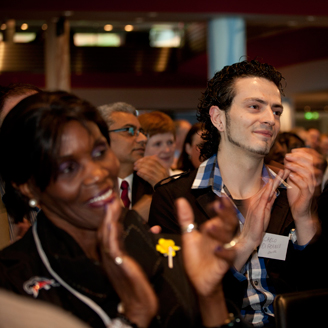Historically managers have segmented teams, clients and business units based on hard quantifiable factors such as industry sector and geography. Having served us well for many years this practice may soon become outdated.

Communication has changed a lot since the 1870s when Bell invented the first telephone and how teams keep up with changes in communiition could effect how well they perform.
It’s common to meet a sales person whose role is defined by a very specific market sector, say hospital based healthcare in a geographical territory such as North West England. Yet isn’t it more important that the salesperson can effectively communicate with the client? Clients, like all people, vary – they communicate differently. Some like to meet and chat whilst others need to see written detail. In a world overflowing with information from a multitude of sources it’s vital that we know how best to gain the attention of the person we are trying to reach, whether that be by email, text, Facebook or a posted letter. In the future we will see client lists segmented by preferred communication medium; in addition to telephone and field based sales teams, expect to see social network sales teams.
It won’t just be sales teams that operate differently, this is bound to have an impact within any organisation that needs to reach, inform or persuade people in other businesses. Dentists will have to think about sending appointment reminders not just by mail but instead using the communication medium most likely to encourage the patient to book a check up. Switched on motor mechanics will send service reminders in a timely and appropriate manner meaning that they will win business from the local garage or franchised dealer.
Inside organisations, team briefs shouldn’t be restricted to monthly meetings but should employ video clips and instant messages to share information quickly and in detail, not just once a month but as soon as the business can benefit from the news being shared. Employees should be allowed to subscribe to their preferred channel, increasing ‘buy-in’ and leading to greater engagement.
And the greatest opportunity in all of this is that we don’t need to engage expensive consultants to make this happen as the experts are close at hand, the real experts are school leavers and under-employed graduates.











